The Day My Husband Disappeared
On a trip to Greece for Michelle Kramer's birthday, her husband, a succesful doctor who lavished her with gifts, vanished. Her search for him turned up shredded documents, survivalist gear, and $6 million in debt.
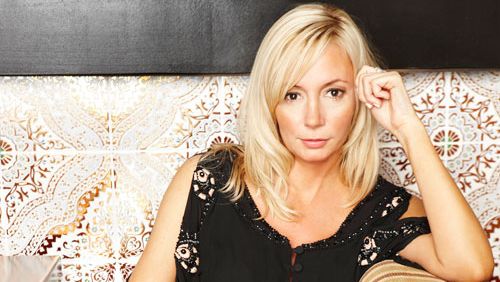
The night before Mark Weinberger went missing, he slipped into bed with his wife, Michelle, and gently turned to her. Clicking his wedding ring against hers, he whispered, "Never say bye-bye." It was a funny little routine the two had shared throughout their three-year marriage — the ring click, the phrase. "I'm not even sure how it started," Michelle says. But something seemed different this time. Mumbling that he didn't feel well, Mark, a wealthy, Chicago-based surgeon, stood up and headed toward the bathroom on the couple's yacht, docked off the Greek island of Mykonos. Too jet-lagged from travel to follow him, Michelle closed her eyes, drifting to sleep.
The next morning, Michelle woke up at 6 a.m., alone. Mark had probably just gone for a jog, she told herself, trying to shake a chilling feeling that this could be something more serious. Mark had been acting strangely of late, due to stress over several malpractice suits. One day, he randomly asked Michelle if she would be willing to move to Europe from Chicago and live a simpler life. "Sure," she said. She would follow him anywhere. Then he asked if she could sever all ties to her friends and family. Michelle didn't take the question seriously; it was just a fantasy, she thought.
She also didn't believe the malpractice claims against her husband. He was a successful surgeon specializing in sinuses; he ran his own clinic in the town of Merrillville, Indiana, not far from Chicago. People were always suing doctors, she thought — especially surgeons who flaunted their wealth, as Mark liked to do. Anyway, she had her own problems to deal with: She'd recently suffered a miscarriage, five months into her pregnancy, and she was still recuperating. With her 30th birthday on the horizon, this trip to Greece was supposed to be a celebration. A new start.
Michelle got her new start, but not the one she expected. Her husband didn't return from any jog on that fateful September morning in 2004. Frantic, she scoured the island, fearing that he had been injured somehow and couldn't get back. Then she grilled the yacht's captain, who simply grinned and urged her not to worry. Eventually, he confided a secret: "Mark has flown to Paris for the day to buy you a birthday present. He'll be back before sundown."
Sundown arrived, but Mark didn't. He had disappeared, apparently on purpose. It seemed that Michelle's fairy tale — her romance and life of luxury — was over. On that night, she made a resolution: She would solve the mystery of her husband's stunning vanishing act. She would find him.
On a recent Saturday afternoon, Michelle Kramer, now 36, tiptoes in her stilettos along the cobblestone streets of a harborside neighborhood in Baltimore, her blonde hair blowing in the breeze. Wearing a fitted camel coat and skinny brown pants, she looks like a buttoned-up Brooks Brothers model, but with a go-go-girl edge. She steps into a quiet pub, orders a steak sandwich, and recalls the night she first met her husband.
She and Mark were at a club in Chicago, she says, both with friends. Michelle, then 25, was working as a counselor at a hospital, living with her parents. She'd grown up on Chicago's south side, a blue-collar neighborhood where her Irish-German-American father worked three jobs: as a pipe fitter, snow blower, and repairman. "He worked hard — he wanted to achieve the American dream," Michelle says. "He got up at 4 a.m., had coffee and a powdered doughnut, went to work."
Stay In The Know
Get exclusive access to fashion and beauty trends, hot-off-the-press celebrity news, and more.
Michelle remembers Mark looking "very New York" in his black satin shirt that night at the club, back in 2000. "I was a bit starry-eyed," she says. She had been wowed by doctors ever since she was 13, when she nearly lost a leg after a drunk driver plowed into her. "The doctors were like gods," she says. "I decided I wanted to be a doctor, too. That wasn't something that happened in my neighborhood. You were a nurse."
Mark, 36 at the time, invited Michelle to dinner, and then to Miami for a weekend. On that trip, the two "laughed the whole flight, till people thought we were crazy," Michelle says. The couple also discussed serious topics: medicine and philosophy, as well as psychology, which she had studied in college. "He liked that we had nerdy scientific books in common," she says. "He said, 'I meet a lot of pretty girls who are pretty vapid. But you are a formidable foe.'"
Soon they met each other's parents. His family had run a popular packaged-food business in New York for years; Mark had inherited his father's business drive. He wanted to open his own clinic one day, instead of working at a group surgery center. Mark had been married once before, he told Michelle, but the union was short-lived, as he believed his wife had been unfaithful. Michelle began to picture their own future together.
Michelle sits at a fireside bar in the lobby of her Baltimore apartment building, a former tin factory converted into trendy waterfront dwellings. She jokes with the bartender about a local delicacy she discovered at a street market — chocolate-covered waffles on a stick — then continues the tale of her Hollywood romance.
She moved in to Mark's place quickly, she says. At his urging, she quit her job, entertaining herself each day by preparing for Mark's arrival home from work. A favorite activity: dressing up for him as a sexy librarian. While Mark was thrilled with this arrangement, Michelle soon began to feel unfulfilled. "I had nothing of my own," she says. "I had to do something. I'm my father's daughter." So she started studying for the GREs. Her goal: Get a Ph.D. in psychology.
Romantic trips to Greece and Italy followed; a wedding proposal on bended knee came within the year, at a historic piazza in Rome. "I looked into that ring and saw my whole future reflected," Michelle recalls. "Marriage, kids, grandkids. It was like the fairy tales my parents had read me as a child." In November 2001, she hopped into a horse-drawn carriage and married Mark at the Chicago Botanic Garden.
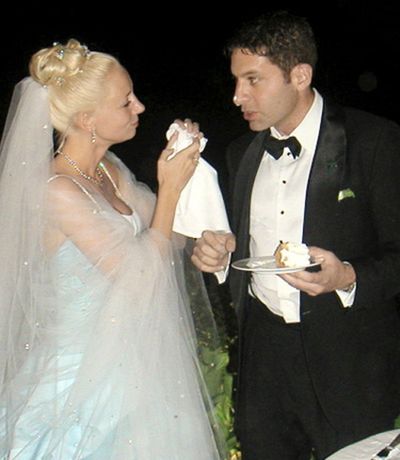
The first few months of marriage, however, were less than rosy. Michelle had just begun a graduate program at the Chicago School of Professional Psychology when her father died of lung cancer. The tragedy left her consumed with grief — and concerned about her footing with Mark. "He didn't really seem able to empathize," she says. "It was like he was just going through the motions." Still, she rationalized his behavior away, telling herself he was just a typical self-centered guy. Mark's mother died soon after.
The couple muddled through, reigniting their romance with a second wedding ceremony in Ravello, Italy, in the spring of 2002, on a cliff overlooking the sea. Around this time, Mark opened his own clinic in Merrillville, and his business took off. He and Michelle entered a life of unmitigated luxury, spending the next couple years traveling the globe, often on private jets. They bought a condo in Chicago and property in the Bahamas. They took the Concorde to London. They went to the Cannes Film Festival and partied with celebrities. They bought an 80-foot yacht in Europe; they shopped at Versace and Dior.
Michelle continued her studies, while doing fieldwork in a medical center for war veterans. She paid no attention to the family finances, she says, because she didn't have the time, or inclination. She had no bank account; she never saw the bills. "I was processing this whole issue of wealth," she says. "It was all fun, glamorous, fabulous. But I had come from the land of unions. Suddenly I had maids in maid uniforms, drivers, a massage therapist, sheets with thread counts of like a million. One night, when we were flying into Chicago on a private jet, I looked down and saw all the little blue-collar homes where I grew up. I was trying to find meaning in all this."
Mark, in the meantime, was growing increasingly eccentric about his needs. He wanted a laptop and BlackBerry in every room. He became obsessed with staying fit, buying multiple copies of The South Beach Diet. "He seemed to want to control something," Michelle says. "But I didn't know what." She urged him to get help; he dismissed her concerns.
One day, Michelle came home from a psychology conference in Hawaii to find the condo peppered with security cameras. A safe had been installed in every room. Mark, now facing several malpractice suits, was getting paranoid. "He thought he was being targeted for his wealth," Michelle says, adding that she firmly believed he was innocent. "He wasn't a lousy doctor," she says. "The man I married wouldn't hurt people."
In the spring of 2004, Michelle got pregnant. Five months later, she miscarried. The ordeal sent her reeling, especially since Mark seemed incapable of consoling her. Things were spinning out of control. Mark was pulling away. The couple began fighting frequently, with Michelle saying in one emotional outburst that she had lost the baby because of Mark. The accusation caused him to bawl. "I thought we were soul mates," he said. "Everything has changed." Michelle felt lost. "I could feel him throwing me away," she says. "Still, part of me thought, Maybe the person I fell in love with will come back to me. Maybe this is finite."
A few weeks later, when Mark suggested traveling with friends to Greece to celebrate Michelle's 30th birthday, she had renewed hope: Perhaps this trip was just what they needed to reconnect. Maybe they could recapture the magic.
On their first night together in Greece, in September 2004, the couple shared dinner in a café overlooking a shimmering harbor, planning the week ahead: a birthday celebration with friends, followed by a trip to Turkey. Sitting together in the bedroom of their yacht that night, Mark said, "You really do love me, don't you?" Michelle replied, "Of course I do." The next morning, they sat in that same room, discussing their future. "He said all the right things, but there was an emptiness," she says now. The next day, he was gone.
As news of Mark's disappearance flew across the island, Michelle called her mom, Mark's family and colleagues, the American embassy in Greece. No one had heard from him. Facing thousands of dollars in docking fees, she needed to get off the island, fast. Before she flew home, the captain of her yacht handed her the number of a Greek cell phone Mark had once given him, and she called it. To her surprise, Mark answered, and sounded "all happy," she says. She said to him softly, "Mark." He said nothing for a few seconds, then quietly hung up.
Things were about to get weirder. Back home in Chicago, Michelle hurried to Mark's office to see if she could find any clues to his disappearance. There, she discovered a pile of shredded documents, and began piecing them together. There was a name of a hotel in Paris. There was a receipt for a plane ticket from Paris to Cannes. Maybe he was in France. She called the FBI, and authorities began questioning her. "You were the last one to see him?" they asked. She realized she could come under suspicion herself. She continued digging. In Mark's library at home, she found books on international trade, on how to speak Italian. Was he headed for Italy? At Mark's clinic, she learned of his "scary room," a place where he had been stockpiling survivalist gear — compasses, thermal underwear, flashlights. Michelle couldn't believe it: All along, Mark had been plotting a secret life without her.
Soon after, she received a call from the private-jet company she and Mark had used to fly to Greece. Mark, unaware that she had flown back to the U.S., had apparently asked the company to tell her she could use his account to fly from Greece to Paris and then home. For Michelle, this was a sign: "I thought, Mark is in trouble. He needs me. He wants me to fly to Paris and meet him," she says. She promptly flew to France.
In Paris, Michelle raced to the hotel mentioned in the shredded papers. A front-desk clerk recognized Mark's photo — Michelle had missed him by a day. She then canvassed the clubs and cafés the couple had once loved, desperately showing people her husband's picture. "They laughed," she says. "My hair was a mess; I was wearing sweats. I must have looked crazy." She returned to Charles de Gaulle Airport, certain that Mark would meet her there. "I kept looking around, staring at the men sitting next to me, in case any of them had a message for me from Mark," Michelle says. "I was watching their faces, waiting for my message. I was becoming paranoid. But I wanted answers. I thought maybe he had met someone else. I just wanted him to explain."
That explanation was not to come. Back in Chicago, creditors began circling. Soon it became clear that Mark had left Michelle with $6 million in debt — and that he had traded chunks of his cash for diamonds. Further, he was still buying things, like designer clothes, with his credit cards across Europe. He was maxing out his cards. He was going to casinos, most recently in Cannes.
Michelle jumped back on a plane, with a new plan: She would disguise herself and lurk in the casinos Mark frequented. When she saw him, she would slap a pair of handcuffs on his wrists, drag him away, and demand answers. At a sex shop, she bought handcuffs and a wig. The "outlandish plan," she says, reflected her mental state at the time: "In a crazy situation, you can either retreat and give up, or act crazy to survive."
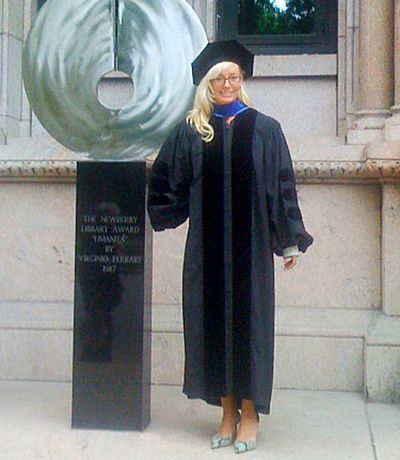
Michelle did not find Mark in Cannes; instead, she went back home, deciding to take the next year off from school to "put out fires." For weeks, she could barely sleep or eat, and her mom moved in with her. "The house became like a dilapidated mansion," she says. "Rumors were flying. People thought I was in on some scam, or that I killed him. The authorities were after him, too. He had defaulted on a bank loan, and now it was a legal matter." Meanwhile, the malpractice suits against Mark were snowballing. He was being accused of the worst kind of crime imaginable for a doctor: performing bogus surgeries on his sinus patients.
In October 2005, around a year after her husband's disappearance, Michelle filed for bankruptcy to deal with the colossal debt. Still, she held onto an improbable notion that she and Mark would reconnect, perhaps on the date of their wedding anniversary in November. On that day, she thought, he would somehow contact her. When he didn't, she says, she finally realized it was over. She filed for divorce, got her own place, and resumed her graduate studies in psychology — thanks to student loans, a day job working for a neuropsychologist, and a night job at a club. She would no longer be defined by her husband's betrayal. "I decided, I'm not gonna curl up in this little ball and die," she says. "I'm not gonna let him destroy me."
More than five years after Mark's disappearance, in December 2009, Michelle got an astonishing phone call from a producer she knew at America's Most Wanted. Her ex-husband had been found, huddled in a tent atop Mont Blanc, the highest mountain in the European Alps, in subzero temperatures. When authorities took him in for questioning, Mark attempted to end it all by stabbing himself in the jugular with a hidden knife — but survived.
Officials learned that Mark had been living alternately in the tent — stocked with cans of food, clothing, and other gear — and in an apartment in the nearby Italian town of Courmayeur. His plan was to write a survivalist handbook; hence, the tent. A simple blunder had led to his capture: He'd fallen behind on the rent for his apartment, and the landlord had gone to the police. (Oddly, Mark had used his real name when renting the apartment.) In investigating, the police unearthed Mark's international arrest warrant. He was now facing more than 300 malpractice suits in the States.
Michelle, meanwhile, was busy doing a predoctoral internship at a hospital in Alabama, working with injured war veterans. Upon hearing about Mark, she says, "My throat went dry. I could feel a pulsating in my ears. I was outside, and ambulances were racing by. I sat down on a stoop at a construction site. I was sobbing, but there were no tears. I didn't know if I was happy or sad."
She felt no desire to talk to her former husband. However, his most recent girlfriend — an Italian woman living in Courmayeur — wanted to talk to her. The two shared a few e-mails about how they had both been duped, and then Michelle wanted to move on.
Six months later, Michelle received her doctorate in clinical psychology in Chicago. "When I got my diploma, my hand was shaking," she says. "My mom was there, cheering me on. I thought, No one can take this away from me, right?" Today, Michelle is working on a postdoctoral psychology fellowship in Baltimore. She lives a more normal life now: She works marathon days at a hospital; she worries about her mom; she tries to go on one date a week. How did she not only survive such an extreme betrayal, but thrive? "I never lost myself, even when I had all that stuff," she explains. "I just didn't lose who I was." She credits her down-to-earth parents for that — her hardworking father who juggled three jobs.
It's a Sunday afternoon in Baltimore, and Michelle is just back from walking her dogs, an aging white Labrador named Angel and a bouncy Maltese called Bling. She's gearing up for the week ahead, when she'll counsel patients with injuries ranging from spinal-cord trauma to brain damage to amputated limbs. "My life has come full circle," she says. "Sometimes I think of myself in that full-body cast when I was 13, when I nearly lost a leg. Now I help my patients deal with pain and trauma. I feel like it's the universe's way of saying that what happens to you has meaning."
This past fall, Mark Weinberger pleaded guilty in Indiana to 22 counts of health-care fraud. (Hundreds of malpractice suits are still pending.) In his plea deal with the prosecutor, he agreed to serve four years in jail for fraud. At press time, he was awaiting the judge's decision on the sentencing. Michelle thinks he deserves a stiffer sentence. In October she wrote to the judge, expressing her opinion. "Mark not only hurt patients," she says now, "he ruined people's trust in doctors."
Michelle has not talked to Mark since that moment in Greece when he hung up the phone. She still finds it hard to believe that she married a monster. "It makes me sick to think of how he funded our lifestyle," she says, noting that he is the definition of a narcissist. Then she pauses and adds, "But in the end, I won. I was more than a 'formidable foe.'"
Abigail Pesta is an award-winning investigative journalist who writes for major publications around the world. She is the author of The Girls: An All-American Town, a Predatory Doctor, and the Untold Story of the Gymnasts Who Brought Him Down.
-
 Netflix's 'North of North' Transports Viewers to the Arctic Circle—Meet the Cast of Inuit Indigenous Actors
Netflix's 'North of North' Transports Viewers to the Arctic Circle—Meet the Cast of Inuit Indigenous ActorsThe new comedy follows a modern Inuk woman determined to transform her life.
By Quinci LeGardye
-
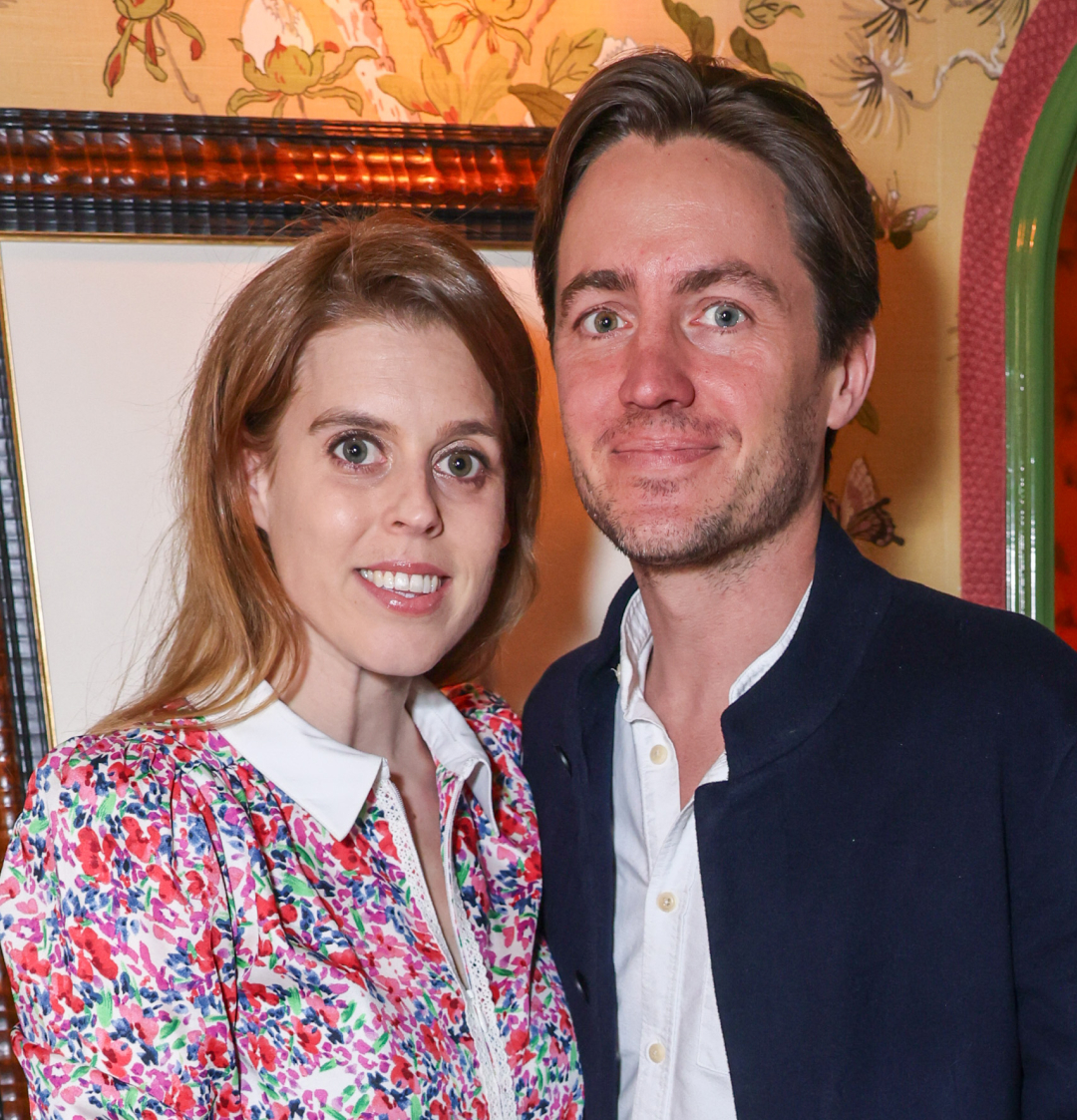 Princess Beatrice's Husband Pays a Rare Tribute to These Royal Family Members on Instagram
Princess Beatrice's Husband Pays a Rare Tribute to These Royal Family Members on InstagramEdoardo Mapelli Mozzi shared some behind-the-scenes snaps from the F1 Grand Prix in Bahrain.
By Kristin Contino
-
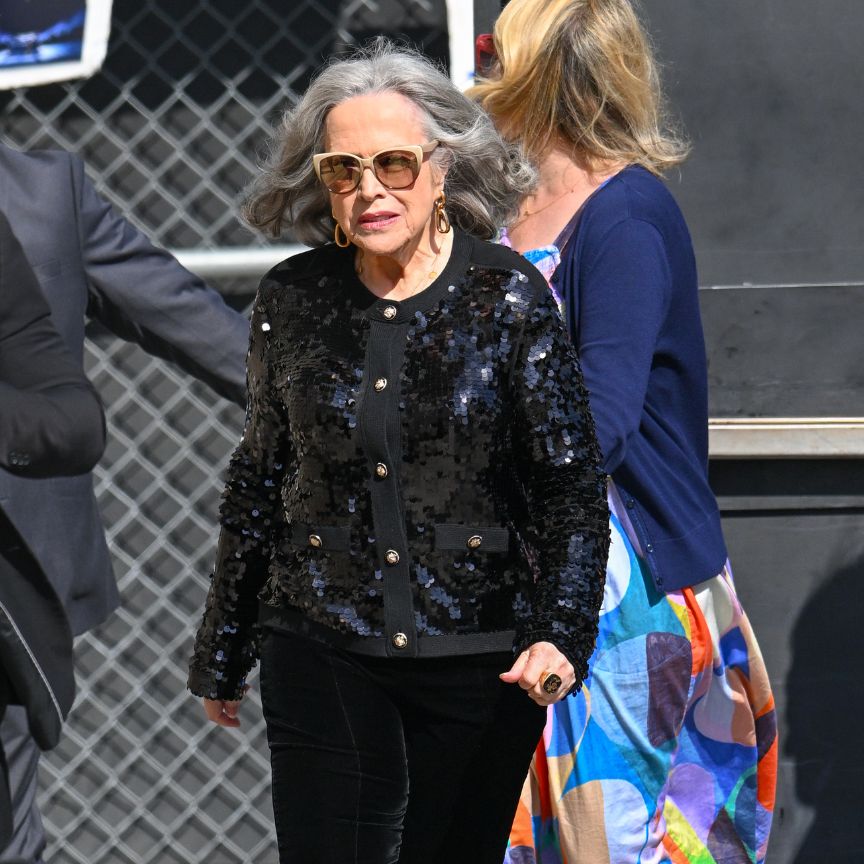 Allow Kathy Bates to Convince You to Grow Out Your Grays
Allow Kathy Bates to Convince You to Grow Out Your GraysOne look at her new style and you'll be canceling your root touch-up pronto.
By Ariel Baker
-
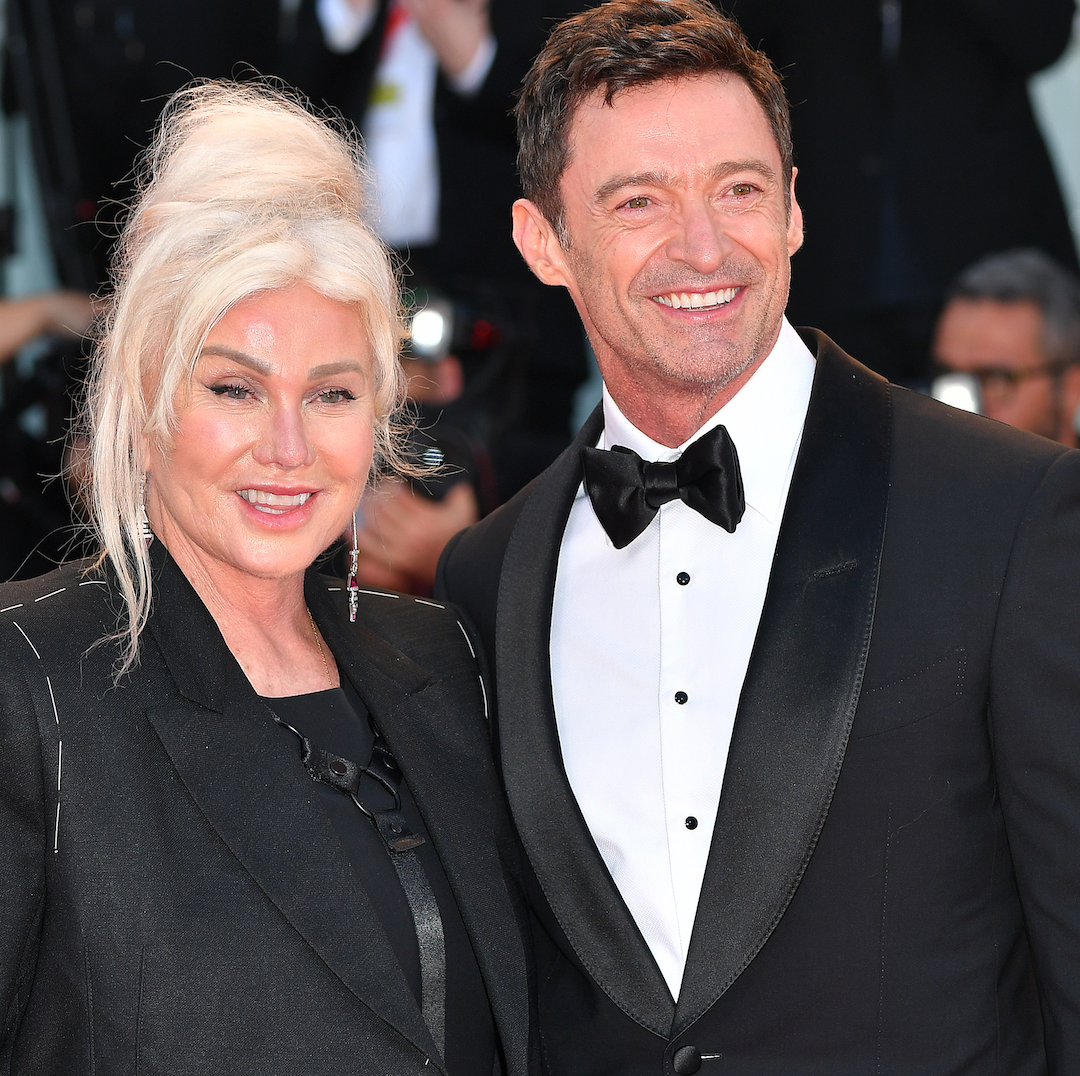 Who Is Hugh Jackman's Ex-Wife, Deborra-lee Furness?
Who Is Hugh Jackman's Ex-Wife, Deborra-lee Furness?Features She was married to the actor for 27 years.
By Quinci LeGardye
-
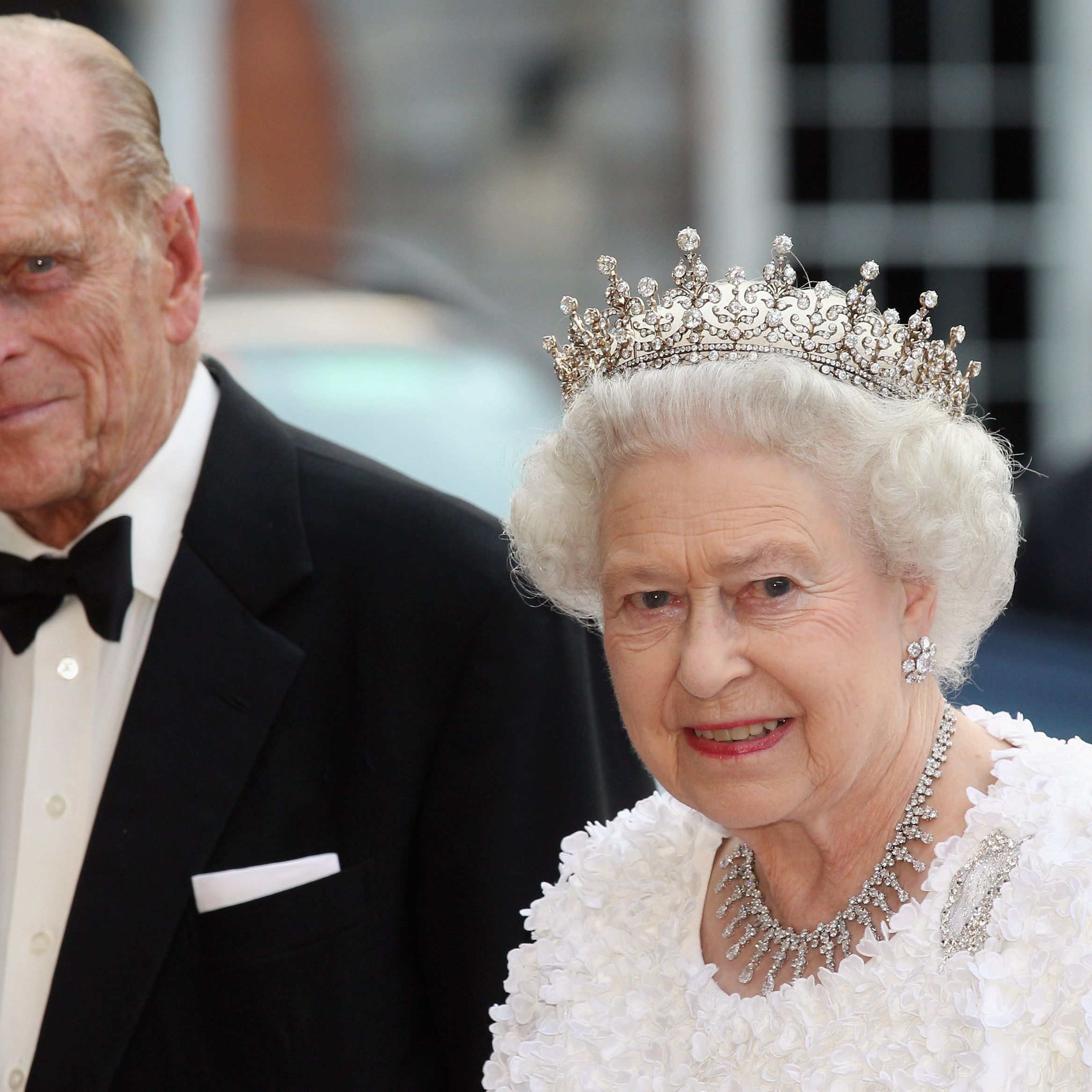 The Queen and Prince Philip: A Timeline of Their Royal Relationship
The Queen and Prince Philip: A Timeline of Their Royal RelationshipLooking back at their royal romance.
By Olivia Blair
-
 The 13 Best Virtual Date Night Ideas
The 13 Best Virtual Date Night IdeasWhether you're on your first date with them or your hundredth.
By Bianca Rodriguez
-
 57 Thoughtful Gifts for Your Boyfriend
57 Thoughtful Gifts for Your BoyfriendThat was easy.
By Julia Marzovilla
-
 Michelle Young's 'Bachelorette' Season: Everything We Know
Michelle Young's 'Bachelorette' Season: Everything We KnowOne of the contestants is set to be the next Bachelor.
By Marie Claire
-
 The 17 Best Dating Sites and Apps
The 17 Best Dating Sites and AppsFeatures It's time to meet your match.
By Julia Marzovilla
-
 The 20 Best LGBTQ+ Movies Ever
The 20 Best LGBTQ+ Movies EverFeatures Celebrate Pride Month by watching these excellent movies.
By Katherine J. Igoe
-
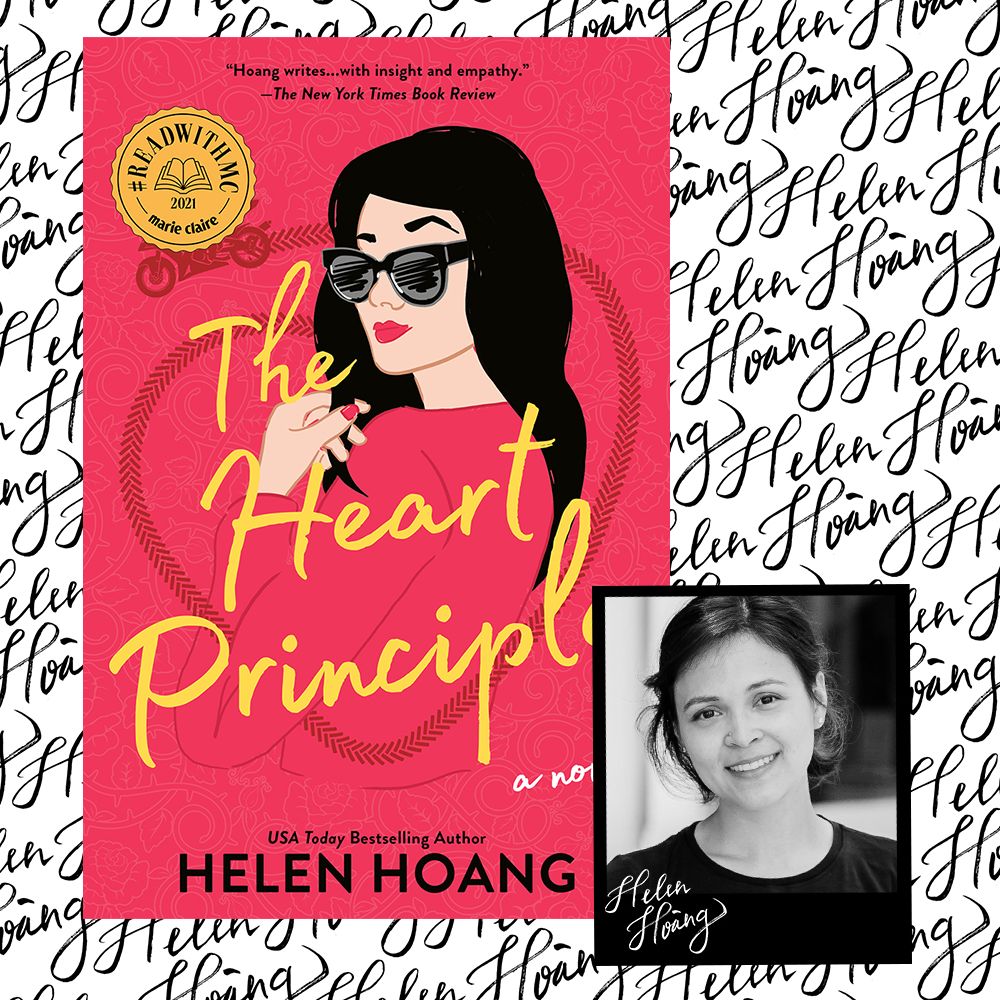 'The Heart Principle' Is Our September Book Club Pick
'The Heart Principle' Is Our September Book Club PickRead an excerpt from Helen Hoang's latest romance novel, here, then dive in with us throughout the month.
By Rachel Epstein